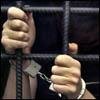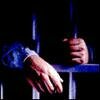Другие материалы рубрики «English»
-
 Lukashenka calls for «a strong and united» Ukraine
Lukashenka calls for «a strong and united» Ukraine
Alyaksandr Lukashenka called for "a strong and united Ukraine" while meeting with Ukrainian Ambassador Mykhailo Yezhel in Minsk on May 15... -
 Another convict executed in Belarus
Another convict executed in Belarus
Another convict has been executed in Belarus, the Vyasna human rights center reported on Monday with reference to the Mahilyow Regional Court...
- National Bank to lower refinance rate to 21.5 percent on May 19
- Belarusian man arrested in Luhansk on suspicion of recruiting two Ukrainian women to engage in prostitution in Turkey
- Belarusian Party of Left calls for single opposition candidate in 2015 presidential election
- Secretary general of Council of Europe calls for moratorium on executions in Belarus
- Belarusian Christian Democracy calls for banning alcohol ads, restricting alcohol sale
- International exhibition of sports goods opens in Minsk
- Belarusian Christian Democracy members clean up Stalin-era massacre site
- Open-air exhibition of pictures of architectural monuments opens in Minsk
- United Civic Party leader suggests creating “board of shame”
- Traditional march in Minsk marks Chernobyl anniversary
English
House of Representatives approves amnesty bill
The House of Representatives on Wednesday gave first-reading approval to an amnesty bill introduced on the occasion of the 70th anniversary of the liberation of Belarus from the Nazi invaders.

While introducing the bill to the lower chamber, Interior Minister Ihar Shunevich said that the Belarusian authorities applied the principle of "humanity" toward convicts. "The state not only punishes but also gives people a chance to reform, leave prison early," he said.
Under the bill, submitted on behalf of Alyaksandr Lukashenka on April 21, about 2,100 people are to be released from “closed-type” correctional facilities and about 630 people are to be released from “open-type” facilities.
In addition, about 7,000 inmates of closed-type correctional facilities and some 900 inmates of open-type facilities are expected to have their prison sentences reduced by one year.
The amnesty bill stipulates that no amnesty may be granted to people convicted of murder or grievous bodily harm resulting in death, drug-related and DUI offenses and sexual assaults.
Amnesty would also be denied to people who had been amnestied or pardoned between 2007 and 2014 but relapsed, as well as persistent violators of prison rules, "especially dangerous" repeat offenders, lifers, those who did not pay compensation for the damage caused by their crimes or for the maintenance of their institutionalized children, and those who have alimony debts.
Speaking to reporters before the vote on the bill, Mr. Shunevich expressed certainty that the amnesty campaign would not lead to a rise in Belarus' crime rate.
The number of offenders who relapse into crime after being released under amnesties has been steadily decreasing, he stressed.
Asked by BelaPAN whether people widely regarded as political prisoners could be released from prison or have their sentence reduced under the coming amnesty, Mr. Shunevich stressed that laws had no such term as "political prisoner." "The amnesty will apply to those who have committed a crime that poses no big public danger," he said.




В настоящее время комментариев к этому материалу нет.
Вы можете стать первым, разместив свой комментарий в форме слева